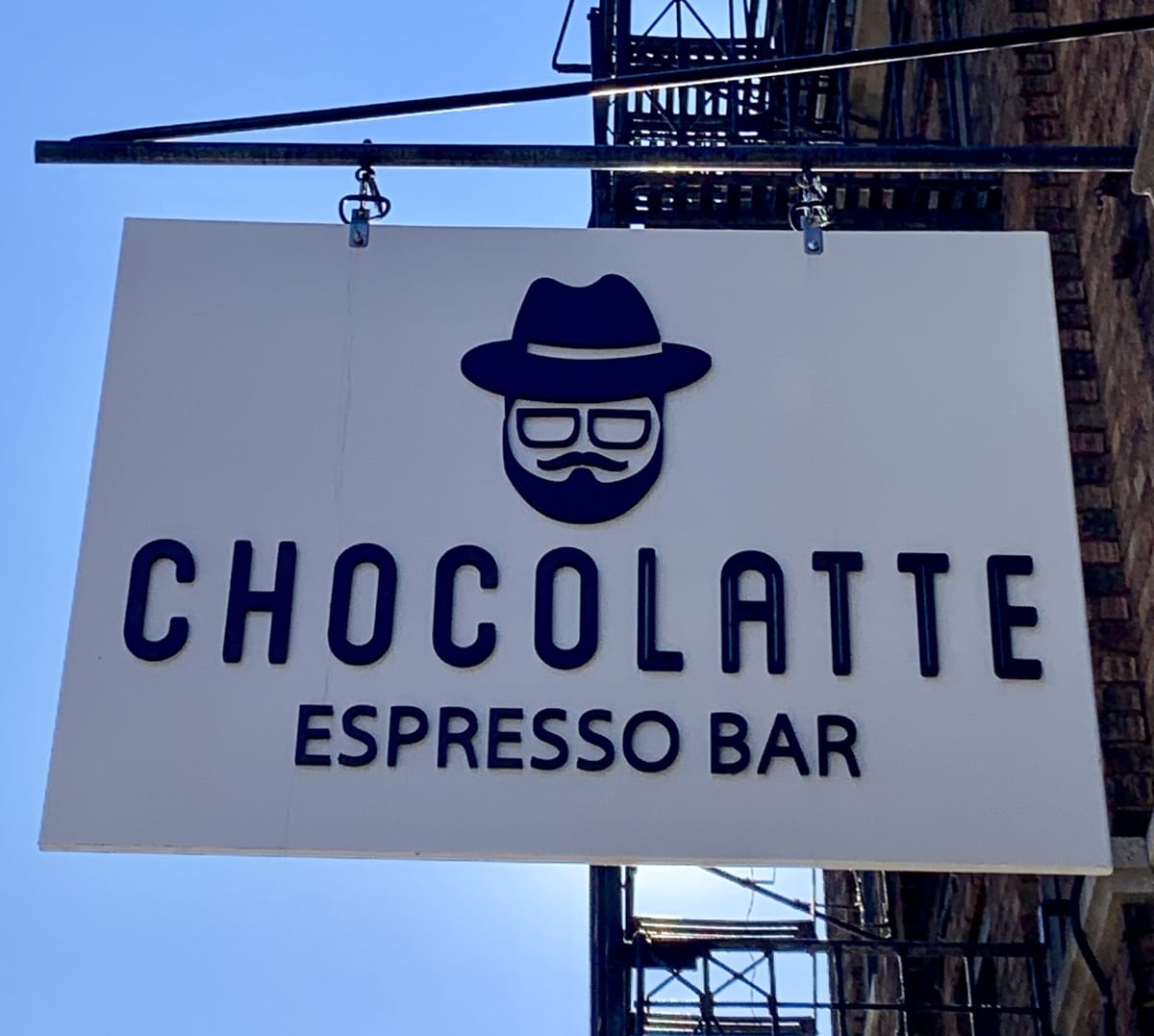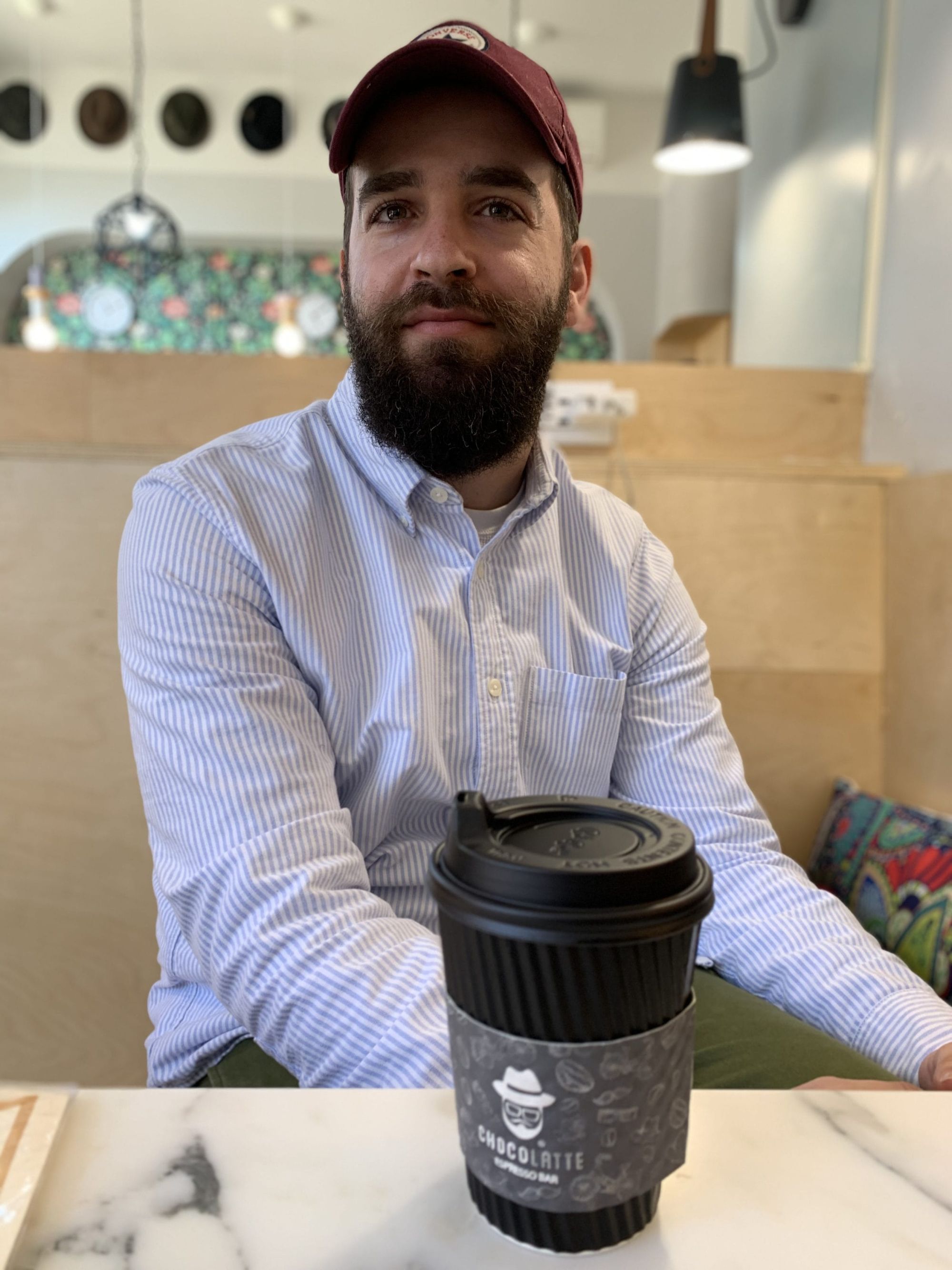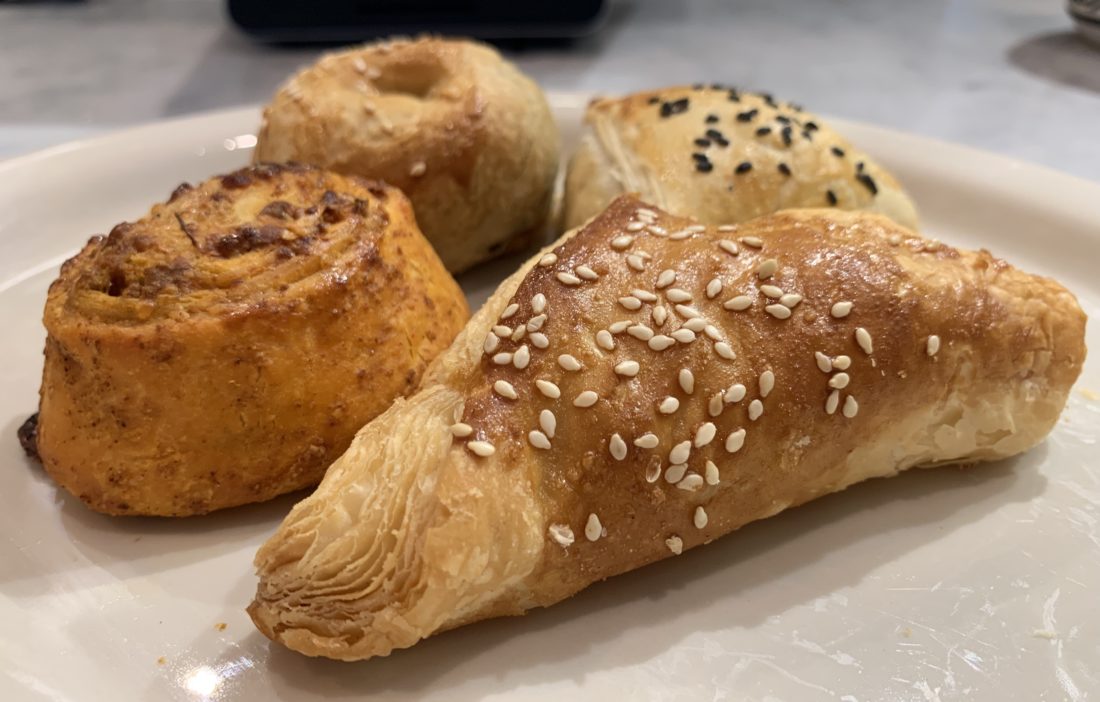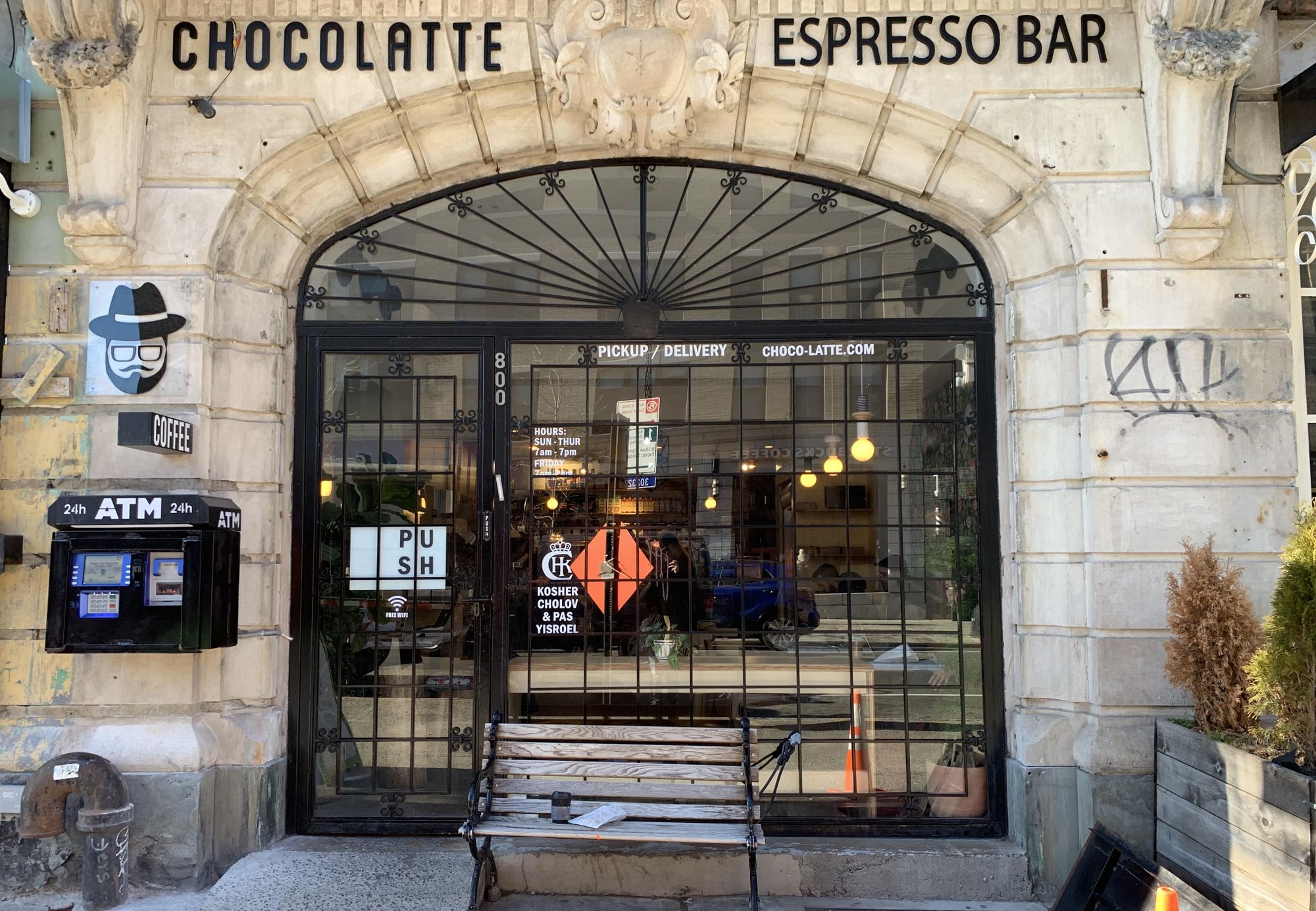Kosher Coffee Shop Chocolatte Comes to Franklin Avenue


CROWN HEIGHTS — A bearded, fedora-clad gentlemen, his blank eyes staring out from behind dark-rimmed glasses, watches over the clientele at Chocolatte at 800 Franklin Avenue.
The bearded dude is the shop’s logo – and, in a way, its mascot, woven into Chocolatte-brand hats, printed on thermoses and mason jars, and stamped onto every single packaged food item in the store. And, while the logo may look like an orthodox Jewish man, it is, according to co-owner Shemi Harel, intentionally ambiguous – it could be a Jewish guy, yes, or it could be a hipster – or “just a good-looking fellow.”
That ambiguity defines the guiding ethos behind Chocolatte, the coffee mini-chain launched in 2013 by Israeli brothers Shemi, Michoel, and Levi Harel with their first shop in Crown Heights, at 792 Eastern Parkway, at the Jewish Children’s Museum, and their second location in Midwood, at 1354 Coney Island avenue. While the shops primarily serve the Orthodox Jewish community, Chocolatte welcomes anybody enticed by its vegetarian, Israeli-leaning menu of sandwiches, salads, and pastries, made entirely in-house at each location.
Chocolatte on Franklin Avenue opened in December. When it took over the existing space, formerly occupied by another coffee shop called Pharmer Joe, it kept most of the design elements. The new shop’s pared-down aesthetic of white granite and industrial light fixtures would arguably be at home anywhere in Brooklyn, and there is little to no announcement of its kosher status except for a “Crown Heights Kosher” seal – a hyper-local kosher certification issued by a panel of rabbis from the Chabad community in Crown Heights. Chabad is a movement within Hasidic Judaism, also referred to as Lubovitch.
Chocolatte’s raison d’etre, Shemi said, “is not to have anyone who keeps kosher compromise on the quality of coffee.” While coffee beans are a neutral product and don’t need to be certified kosher, milk is strictly regulated – it must be Cholov Yisroel, the strict kosher certification that must be applied to any dairy product consumed by a Chabadnik, or member of the Chabad community.

While Shemi and his brothers grew up Orthodox, Shemi said that he spent a few years away from Orthodox Judaism. During that time, Shemi operated a Miami franchise of a major coffee chain he declined to name, learning how to pull espresso and steam milk. On a trip to Italy, he drank excellent cappuccino and espresso, even touring the factory where espresso machines by La Marzocco — the company considered the gold standard by much of the third wave coffee industry — get made by hand by one of the founder’s sons. The coffee culture in Italy, Shemi explained, has heavily influenced the way coffee is served and drunk in Israel.
Once Shemi returned to orthodox life, he was forced to slog through poor quality coffee for years, haunted by memories of the excellent coffee he drank in Israel and Italy. While other kosher coffee shops do exist in Brooklyn, like nearby Manhattanville Coffee, as well as 1982 Coffee Shop in Boro Park — both Cholov Yisroel — Shemi wanted to bring the rich espresso drinks he remembered to his orthodox Crown Heights neighborhood.
Achieving kosher status, though, was only half the battle – the coffee still had to be great, and great coffee, Shemi believes, relies on just a handful of factors.
“You’re gonna need a good espresso machine; you’re gonna need good beans; you’re gonna need good baristas,” he said. “You have to [do] whatever it takes.”
The brothers also wanted to use their business to support their Jewish community abroad. They source some of their beans through rabbis stationed in major coffee-growing regions in Guatemala and Nicaragua, Shemi said, “We’re supporting the same cause that the Chabad enterprise is building – to support Judaism around the world.”

Being kosher doesn’t just apply to the food and drink; it also means they must be closed for 70 to 80 days out of the year in observance of Shabbat, as well as both major and minor holidays like Rosh Hashanah, Yom Kippur, and Passover.
“This is the biggest challenge,” Shemi said. “Because the rent continues, bills continue.” It’s almost like paying rent for three months without being open, Shemi explained.
Still, Shemi said that he and his brothers have plans to grow. They have their sights set on Williamsburg, though they’re aware that they’ll need approval from the local certifying rabbi before they can move in. Each community, in fact, holds to its own standard of kosher: while Crown Heights abides by the Crown Heights Kosher certification, kosher establishments in Williamsburg must stick with an entirely different set of standards. The same goes for neighborhoods like Midwood and Borough Park.
While keeping strictly kosher will always be a priority, the brothers aren’t interested in identifying as just a kosher espresso bar. Bringing a kosher establishment into a non-kosher neighborhood, Shemi believes, is a statement – if a place like Chocolatte can be successful in Crown Heights, it shows that there’s room in the market for their concept.
The vegetarian (and partly vegan) menu is an additional boon to business, they feel, and so is the design – the brothers felt that most casual kosher spots have little emphasis on aesthetic, so they wanted their shops to look good.

The response to the new spot has been encouraging.
“We feel the customers are getting what we’re doing – Jews and non-Jews,” Shemi said. “People are actually thankful for us coming here; Jewish customers from the area don’t need to go to Kingston [Avenue] anymore.”
No one can argue, either, with the fresh food and pastries – or items like sachlav, a thick, pudding-like drink made from powdered orchid bulb, sugar, and spices, found all over the Middle East, with different spellings. Here, it’s made with additions of rosewater, shredded coconut, and nuts. On the coffee front, there’s a full coffee and espresso menu, including an ultra-strength Turkish coffee — a preparation commonly served in Israel.
On the menu as well are fresh, flaky bourekas, savory hand pies filled with mushrooms, cheese, spinach, or a “pizza” mixture. Breakfast and lunch items like Israeli salad, egg sandwiches, and avocado toast are made to order, as well as smoothies, and customers can also pick up salads, overnight oats, and other items from the grab-and-go fridge. The menu is unique to the Franklin Avenue location; the food at each Chocolatte is a bit different.
Chocolatte at 800 Franklin Avenue is open from 7 a.m. to 7 p.m. Sunday to Thursday. It is open from 7 a.m. to 2 p.m. on Friday, and is closed on Saturday in observance of Shabbat.




